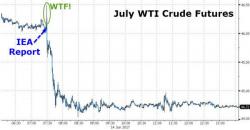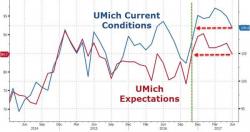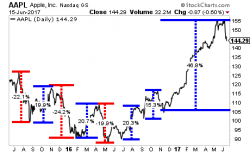"We Call Bullshit On The 'Bots Again!"

Via Global Macro Monitor,
Before hitting the hay we need to call a big B.S. on the bastard ‘bots from Rip (Off) City. They screwed us again yesterday (June 14) in crude oil futures.
First, before we get into the trade, a little background.
We have posted about our experiences of being ripped off by these “so-called” trading ‘bots, who prey and stalk the markets, looking to pick-off traders through blatant market manipulation. Flash crash, my arse.



